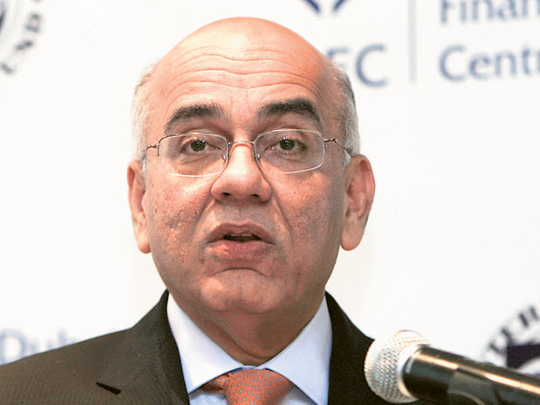
Dubai: Governments across the Middle East are responding to political developments — and higher commodity prices — with expansion of fuel and food subsidies, civil service wage and pension increases and additional cash transfers, tax reductions, and other spending increases.
According to the latest regional economic outlook published by the International Monetary Fund (IMF), the size of the national fiscal packages in 2011 in countries across the region ranges from less than 0.5 per cent of gross domestic product (GDP) in some of the oil importing countries to about 22 per cent in Saudi Arabia.
For most Gulf countries, the expected increase in oil prices from $79 (Dh290) per barrel to $107 per barrel and production volumes will lead to higher growth in 2011 and stronger fiscal and external balances, notwithstanding recent increases in government spending. Despite being in such a fiscal comfort zone, the GCC must pay close attention to long-term fiscal policy objectives, Masoud Ahmad, Director of the IMF's Middle East and Central Asia Department, told Gulf News in a recent interview.
The huge public spending programmes announced by governments in the Gulf have certainly boosted the growth outlook for these countries, but to sustain the increased spending and GDP growth, higher oil prices are assumed. Despite such assumptions, Ahmad believes the Gulf states will manage to balance their budgets as they have done in the past, even in the face of oil price volatility.
"Although the IMF does not forecast oil prices, on a long-term basis we do not see the prices falling significantly. In the GCC, growth is projected to reach 7.8 per cent in 2011 as oil production expands to stabilise global oil supplies in the face of supply disruptions elsewhere," said Ahamd.
"GCC non-oil growth is set to accelerate by more than one percentage point to 5.3 per cent in 2011. Overall, despite the huge increase in fiscal spending for the GCC we expect the current account surplus for the GCC to go up from $136 billion to $304 billion."
Main criticism
One of the main criticisms about the recent government spending programmes in the region is that these are mostly cash transfers and direct subsidies to the public rather than long-term programmes aimed sustainable job creation and economic growth. The IMF official said the recent dramatic increase in public spending will have a long-term impact on economic growth and employment in the region. "I do not believe that all the government spending programmes in the region are mere cash transfers or subsidies. There are a large number of infrastructure projects that will have long-term positive impact on these economies," he said
However, he added that the quality of spending needs greater attention, including the continued strengthening of public financial management. Countries in the region should eventually move away from reliance on untargeted subsidies to more efficient social safety nets. In particular, reforming universal fuel price subsidies would help contain rapidly rising domestic energy consumption.
Heightened oil price volatility has also reinforced the need to cast spending within a multi-year framework to ensure sustainability and improve demand management tools. One option for managing such volatility is to adopt a formal fiscal rule, perhaps involving a country-specific aggregate expenditure cast in a three-year rolling budget combined with a debt ceiling. In practice, most GCC countries simply base their budget on a conservative oil price, with no explicit guidance as to how or whether additional revenues will be spent.
Unintended consequence
Ahmad warned that one unintended consequence of larger public spending and cash transfers to the public will be a surge in inflation. Inflation pressures are rising together with concerns about food security. The GCC is projected to witness a pickup in inflation in 2011 to 5.3 per cent from 3.2 per cent in 2010.
"The key driver of headline inflation is food prices, but core inflation is increasing in many countries, reflecting a rise in inflationary expectations. The GCC will need to carefully monitor the impact of expansionary fiscal spending on aggregate demand to prevent a resurgence of inflationary pressures," he said.
"We believe this time the GCC governments are better prepared to deal with inflation as they implemented a number of macro-prudential measures to rein in prices in 2007-08."
Despite the sustained recovery in the economy, anaemic credit growth has been a big challenge to the private sector in many GCC countries. The first quarter bank results show that despite improvement in balance sheets, banks continue to remain reluctant to lend.
The IMF believes that the GCC's banking sector is broadly sound because of high capital buffers. However, it acknowledges credit growth is slow because of potential vulnerabilities in the non-bank financial sector and banking sector (in Kuwait), the overhang of the real estate sector (Bahrain and the UAE) and the possibility of more debt restructuring (UAE).












